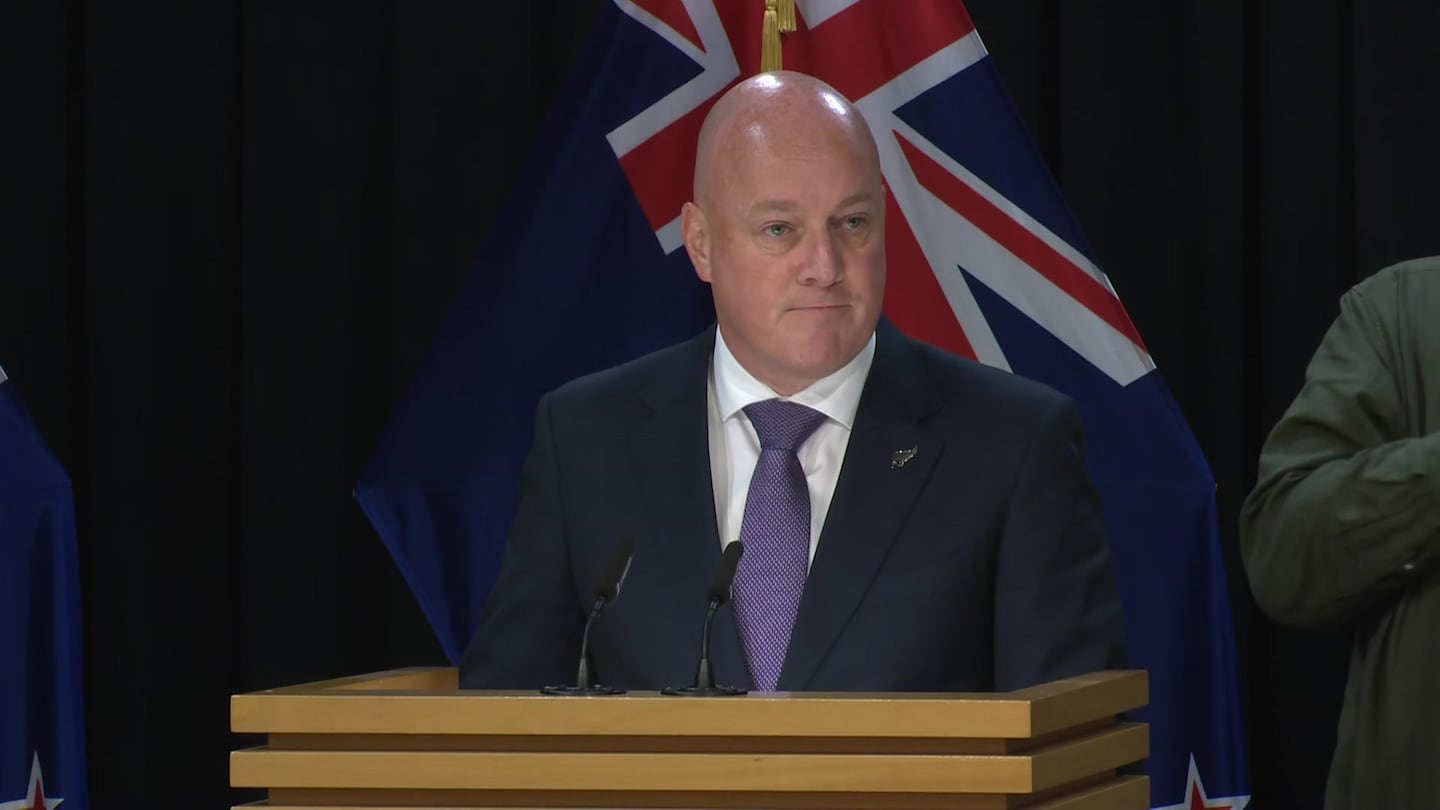The Government is embarking on a multi-year shake up of public housing agency, Kāinga Ora, after a highly critical report found the debt-laden agency was staring down the barrel of annual deficits of $700 million.
The report, led by former Prime Minister Bill English, found that Kāinga Ora exploited its easy access to government credit, bingeing on borrowing without giving sufficient heed to the fiscal discipline taking on such immense debts would require.
Luxon, likely to be joined by Housing Minister Chris Bishop, will be speaking to journalists from 4pm. The Herald will livestream the press conference at the top of this article.
Housing Minister Chris Bishop said the report found Kāinga Ora was “not financially viable without significant savings as well as funding and financing changes”.
“We have significant concerns about the governance of Kāinga Ora,” Bishop said today in the post-Cabinett press conference.
The Housing Minister indicated a total refresh of the Kāinga Ora board. He ruled out a mass sell-off of state houses.
On average, the houses that Kāinga Ora built cost more than the normal housing sector, Bishop said.
The report recommends three stages of renewal at the agency beginning now and lasting over a number of years. The recommendations, if accepted, would eventually see Kāinga Ora operate to a “social investment” model, which was piloted by English during the last National Government.
Bishop today announced Cabinet had agreed to four recommendations, including an immediate refresh of the agency’s board. Former Powerco, Auckland International Airport and Spark NZ chief executive Simon Moutter was appointed Kāinga Ora board chair, with his term beginning on June 4.
Bishop said Kāinga Ora was an asset owner who looked after vulnerable people but also had many other roles - however it needed to focus on its core job of being a “good landlord”. He said the review had taken on an enormous number of tasks given to it by the previous government.
Kāinga Ora received more in Crown capital than was allocated to the North Island weather events, Bishop said.
The board has been without a permanent chair since former Labour minister Vui Mark Gosche resigned in February.
The report found that operating deficits at Kāinga Ora were forecast to grow from $520 million in 2022/23 to over $700 million in 2026/27.
This was mainly driven by interest on the debt-financed capital investment programme. Kāinga Ora drove record public housing construction under the previous government, financed by allowing the agency to borrow under its own name and through capital injections from the Crown.
But this has saddled the agency with immense debts, which the report found to be unsustainable.
“Debt is forecast to increase to $23 billion. Kāinga Ora’s forecast cash requirement from the Crown is $21.4 billion over the next four years. This is equivalent to every New Zealander paying about $4,000 for this activity,” Bishop said.
“The review found that Kāinga Ora has had easy access to debt but insufficient focus on fiscal discipline, and low levels of accountability have led to growing annual losses and a deteriorating financial situation,” Bishop said.
The report was sceptical of the way Kāinga Ora had been governed. Bishop said it found there “has not been a clear separation between the board’s governance role and operational management, and that they saw evidence that the board has been acting more as an advisory function rather than governing”.
The report found that in the “May 2023 board budget pack, there was no Statement of Financial Position” .
“The budget assumed that new lending of several billion dollars from the Government would be approved, the build pipeline included a line entitled “Zero Net Growth” describing disposals of an indeterminate kind of over 3,000 homes per year, and did not provide a budget scenario where Kāinga Ora is limited to the funding agreed by the Government, Bishop said.
Kāinga Ora and its financial performance have been the subject of significant conjecture between the new government and the outgoing Labour administration, with Labour arguing that Kāinga Ora was sustainable provided it continued to receive adequate funding and access to Income-Related Rent Subsidy, the flow of operational funding which subsidises a public housing tenant’s rent.
The suspicion from Labour is that the new Government is keen to shift the provision of public housing places to Community Housing Providers, a collection of private, often charitable providers, who can also access rent subsidies in return for providing public housing places.
The four recommendations accepted today were to align “contractual arrangements across Kāinga Ora and Community Housing Providers”; to refresh the board; to issue a “simplified direction” to the agency; and to “set an expectation that the Kāinga Ora Board will develop a credible and detailed plan to improve financial performance with the goal of eliminating losses”.
Former Kāinga Ora chair Gosche told the Herald he had not seen the report ahead of its publication. He had expected it to be critical of the organisation because the new government had been critical of Kāinga Ora in opposition.
“You would expect the report would be critical… the Government was very critical of the organisation,” Gosche said.
He said the annual reports published by Kāinga Ora when he was chair spoke for themselves.
“All I can say is that there were annual reports for the time that I was on the board and I’ll leave them to speak for themselves,” he said.
Adam Pearse is a political reporter in the NZ Herald Press Gallery team, based at Parliament. He has worked for NZME since 2018, covering sport and health for the Northern Advocate in Whangārei before moving to the NZ Herald in Auckland, covering Covid-19 and crime.
- NZ Herald

